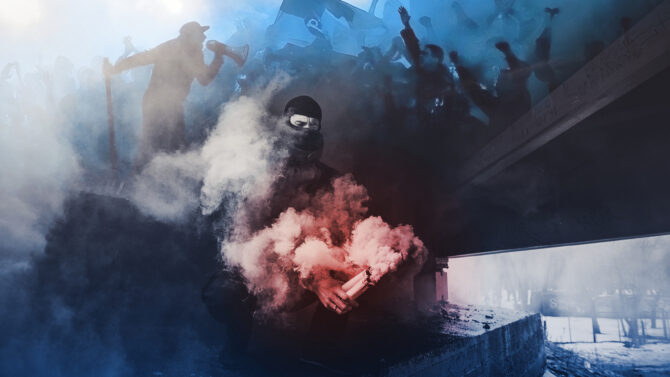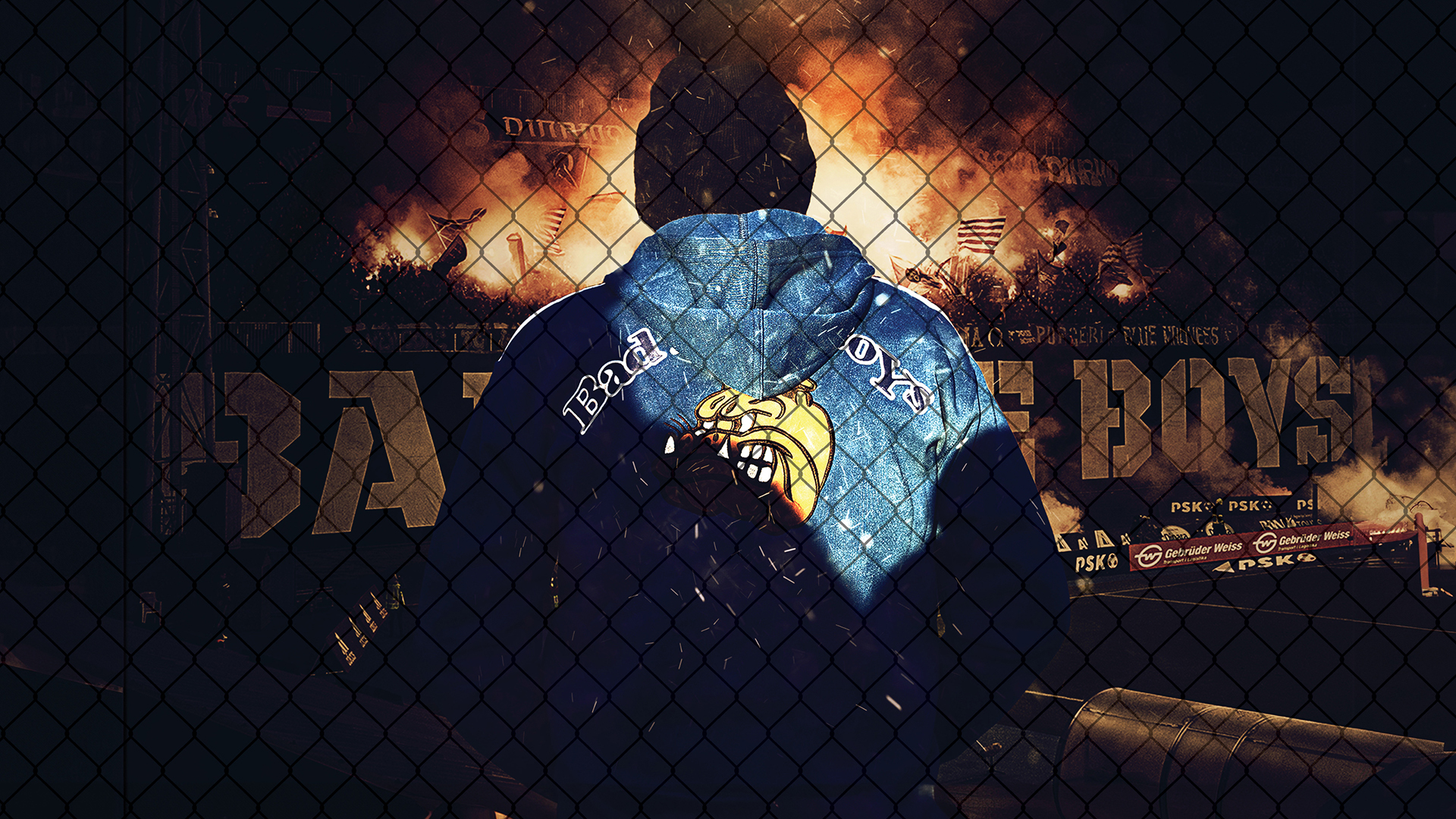iMEdD met in Zagreb with leading members of one of the most known Ultras groups in Europe.
The shadowy world of Telegram hooligans

The Bad Blue Boys, hooligans associated with Croatian club Dinamo Zagreb, have links to organized fans from Ukraine and Greece. An in-depth investigation conducted by iMEdD delved into numerous public channels and social media profiles to uncover the connections between organized fans from Croatia, Ukraine, and Greece, as well as their affiliations with far-right ideologies.
“Message me in the morning on the day of your flight to Zagreb.” The source in Athens, a person close to the Panathinaikos F.C. fan movement that would open for us the door to one of the most known Ultras groups in Europe, said the meeting would only take place on the final day. We had everything arranged –plane tickets, hotel, fixers, stadium accreditations– except for the meeting with the key people we wanted to meet in Zagreb.
The Bad Blue Boys – BBB; a powerful cell of Dinamo Zagreb fans, member of which are accused of carrying out the attack in Nea Philadelphia last summer that resulted in the death of AEK Athens F.C. fan Michalis Katsouris.
We sent the source a message on Viber the morning before we flew to Zagreb. A few minutes later, the name Petar* and a Croatian phone number appeared on the screen. “He will get you where you need to go. Have a good trip,” said the first contact in Athens.
We saved the number on our cell phone, in the taxi on our way to Athens’s airport. Petar replied that he was expecting the message and asked where we were staying in Zagreb. He gave a digital laugh when he read about the Esplanade Hotel, next to the train station.
“It is the best known in Zagreb. It is also mentioned in Agatha Christie’s novel,” he wrote. We put our phones in flight mode. That same evening we landed in the Croatian capital, the city of BBB. It was two days before GNK Dinamo Zagreb’s match against HNK Hajduk Split, the so-called eternal derby of Croatia, on December 17, 2023.
Petar wouldn’t come to meet us the first night. He asked us to meet Nikola* at a pub near the station, a Ph.D. in sociology who spent five years researching the Bad Blue Boys after he stopped being an active member. He was a sturdy 30-something-year-old with a strong handshake.
Groups of young people were having fun around us in the crowded pub, without the slightest suspicion of the unknown world that was slowly opening up in front of us. It was impossible to make a recording in there so we went out with Nikola on the street. “BBB hate politics, they want to steer clear of anything “normal” or mainstream,” he told us.
Nikola was something of a buffer zone for the two unknown Greeks who had travelled to Zagreb and were asking about the BBB. “Before I go, I want to express my condolences to poor Michalis’s mother. He was really part of the Ultras movement. In fact, he was much closer to us than to many of the Greeks who talked about his death.”
BBB hate politics, they want to steer clear of anything “normal” or mainstream
BBB were founded in 1986 and are among the most hardcore hooligans in Europe. Members of the first generation of the group fought against the Serbs in the first half of the 1990s. In front of “Maksimir”, the Dinamo stadium in Zagreb, there is a monument to the fans killed in the Yugoslavian war. In the following years, BBB took on everyone –the president of the team, the football federation, the president of Croatia himself.
Petar asked to meet us at the hotel. He arrived on time with Luca*, who was carrying a small plastic bag. They were two active members of BBB. They were well dressed, between 30 and 35 years of age. They agreed that it would be better to go into the room. We opened the window and turned the two desk chairs to face each other.
“What happened in Athens is the most serious crisis the group has ever faced,” they said –they used the phrase “game changer”. “Now, we don’t know how this will affect our attitude, because the pressure from the government, society and the media is enormous. Enormous!” Most of the time, Luca spoke with his eyes down, but he did so with great passion. “We won’t say we’re the best in Europe, although I personally think we are. The trifecta is “Clean Team-Clean Mindset-Clean Group” at all costs, and we will do everything we can to achieve it.”
The two BBB members denied that the group is a neo-Nazi incubator. “We are Croatian nationalists. We don’t give a damn about Nazism, Hitler or Mussolini. Right now, what we care about is our country, our city, our team,” they said. “At some point in the group’s history, maybe some aspect was different than it is today. We paid with blood our separation from Yugoslavia. Who attacked us? The Serbian Communists of Red Star Belgrade [FK Crvena zvezda].”
However, there are many videos and photos of Nazi salutes and fascist symbols in the BBB stands. An iMEdD investigation last October highlighted the close links between Croatian hooligans and far-right cells in Greece and Ukraine. The Telegram platform facilitates the networking of these groups and is used to recruit new members for the far-right Ultras.
The two BBB members told us several stories in the hotel room that cannot be confirmed. Like the incident in Athens, thanks to which they fraternized with fans of Panathinaikos.
We mentioned that we were planning to watch Dinamo’s match against Hajduk Split in Maksimir the next day. “I think we should stop now, we’ve said too much already,” Petar said, getting up from his chair first. Shortly after, we were tidying up the room. On the desk Luca had forgotten the plastic bag he was carrying when he entered the hotel. We opened it and found a book about ballet. “Is that where I left it?” he asked on the phone. “Okay, I’m coming back to get it.”
* Names changed to protect sources.
The trip to Zagreb was part of the audio documentary Hooligan Express. Listen to all episodes here
